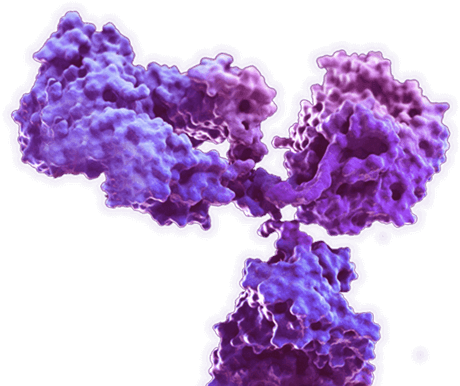Mouse Anti-Arabidopsis AT4G31000 Antibody (CBMOAB-18477FYC)
Cat: CBMOAB-18477FYC
Certificate of Analysis Lookup
To download a Certificate of Analysis, please enter a lot number in the search box below. Note: Certificate of Analysis not available for kit components.
Lot Number
To download a Certificate of Analysis, please enter a lot number in the search box below. Note: Certificate of Analysis not available for kit components.
Lot Number
| Size: | |
| Conjugate: | |
| Inquiry |
- Product Details
Specifications
| Host species | Mouse (Mus musculus) |
| Species Reactivity | A. thaliana (Arabidopsis thaliana) |
| Clone | MO18477FC |
| Specificity | This antibody binds to Arabidopsis AT4G31000. |
| Format | Liquid or Lyophilized |
| Storage | Store at 4°C: short-term (1-2weeks) Store at -20°C: long-term and future use |
| Purity | > 90% was determined by SDS-PAGE |
| Purification | Purified with Protein A or G affinity chromatography |
| Cellular Localization | Nucleus |
Application Information
| Application | WB, ELISA |
| Application Notes | ELISA: 1:1000-1:3000 Other applications are to be developed. The optimal dilution should be determined by the end user. |
Target
| Introduction | Three Arabidopsis genes (At5g57580, At4g31000, and At5g26920) showed high similarity to Os12g36110. At5g57580 belongs to group II of CaM-binding proteins and plays a role in heat shock-mediated increases in cytosolic Ca2+. |
| Product Overview | Mouse Anti-Arabidopsis AT4G31000 Antibody is a mouse antibody against AT4G31000. It can be used for AT4G31000 detection in Western Blot, Enzyme-Linked Immunosorbent Assay. |
| Alternative Names | Calmodulin-binding protein; At4g31000 |
| UniProt ID | F4JR57 |
| Protein Refseq | The length of the protein is 562 amino acids long. The sequence is show below: MENSMNNRGHGHNQEHADNLPESKRQKLPALASVIVEAVKVDSLQRLCSSLEPLFRRIVSEEVERAISRLENSKSTSRSTEPNKIQGLDGRNLQLRFRTRMPPHLFTGGKVEGEQGSAIHVVLIDANTGNVIQTGEESMTKLNIVVLDGDFNDEDDKDWTREHFESFEVKEREGKRPILTGDRHVIIKEGVGTLGKLTFTDNSSWIRSRKFRLGVKPATGFHIREAKTEPFAVKDHRGELYKKHYPPVLHDEVWRLDKIAKDGALHKKLLKSNIVTVEDFLQILMKDPQKLRSLLGSGMSNRMWDNTVEHAKTCVLGGKLYAYYTDQTHQTAVVFNHIYEFQGLIANGHFLSSESLNHDQKISADTLVKTAYENWHKVVEYGGKLLNCLPVAKKGIKSLPEPKMAQNHQTQQKALQCQQTVNGYSSDPQHLIEYPFVQQPCYQLRDYTSMESSSVSGSYNGGLEDIFTEEIRARSSEMLETDNMQRLLKTFGISGGFGNRDESIYGFSDQYEAQIDKGYMREGGRGAGKAVVGWLKLKAALRWGIFIRKKAAERRPQIVEID. |
Reference
| Reference | Raineri, J., Wang, S., Peleg, Z., Blumwald, E., & Chan, R. L. (2015). The rice transcription factor OsWRKY47 is a positive regulator of the response to water deficit stress. Plant molecular biology, 88, 401-413. |
For Research Use Only | Not For Clinical Use.
Online Inquiry


